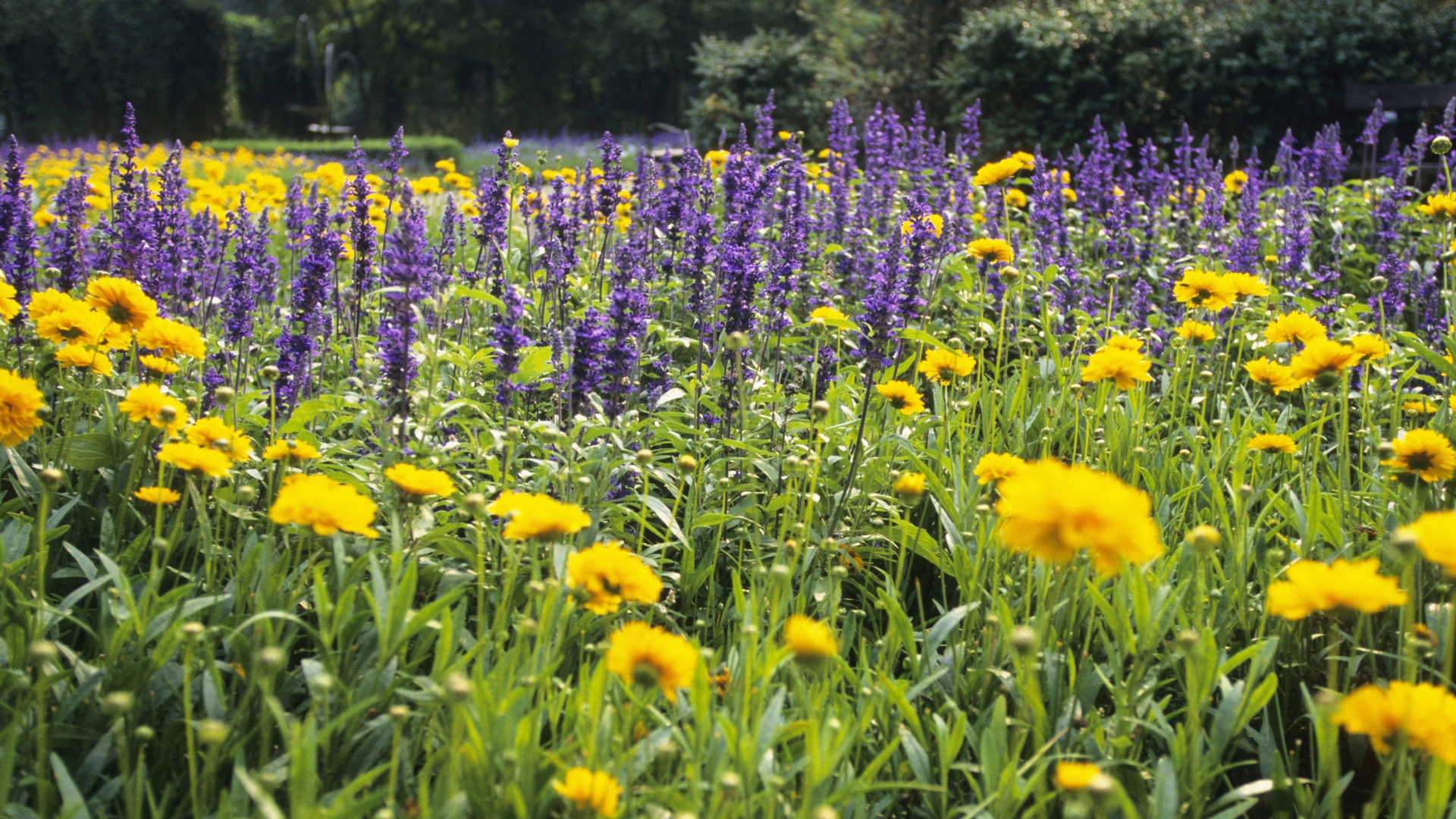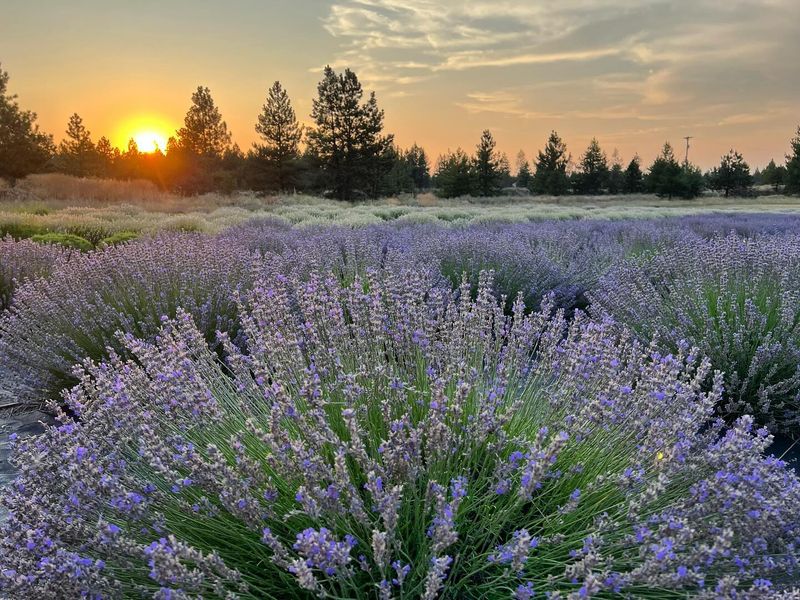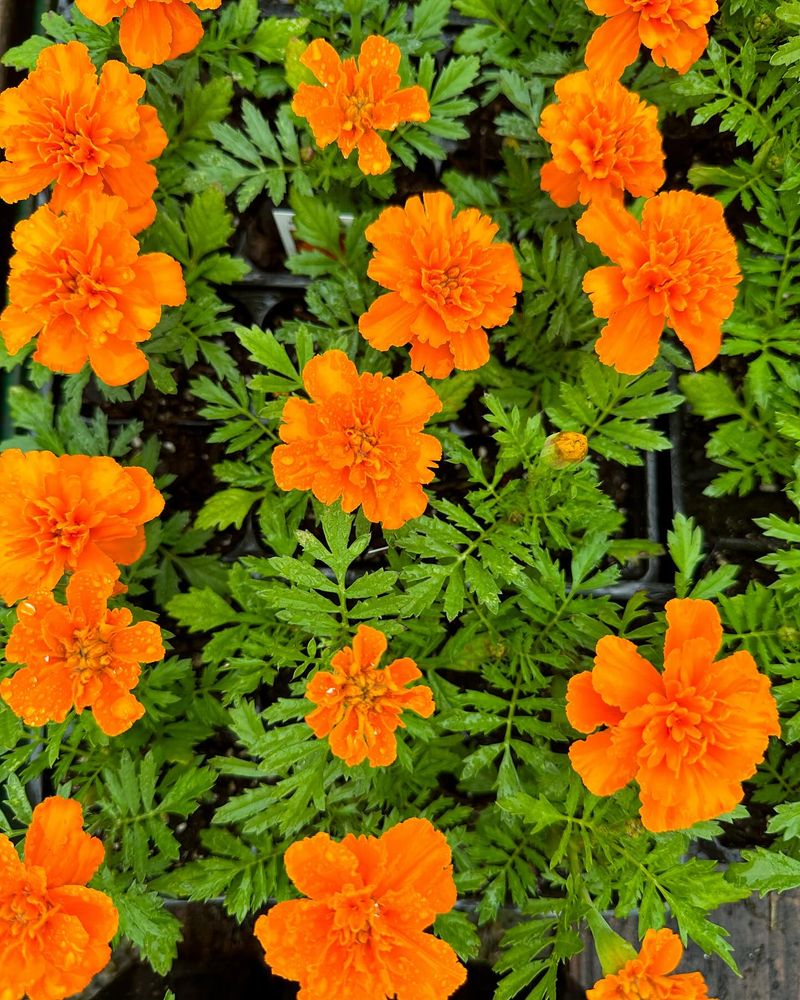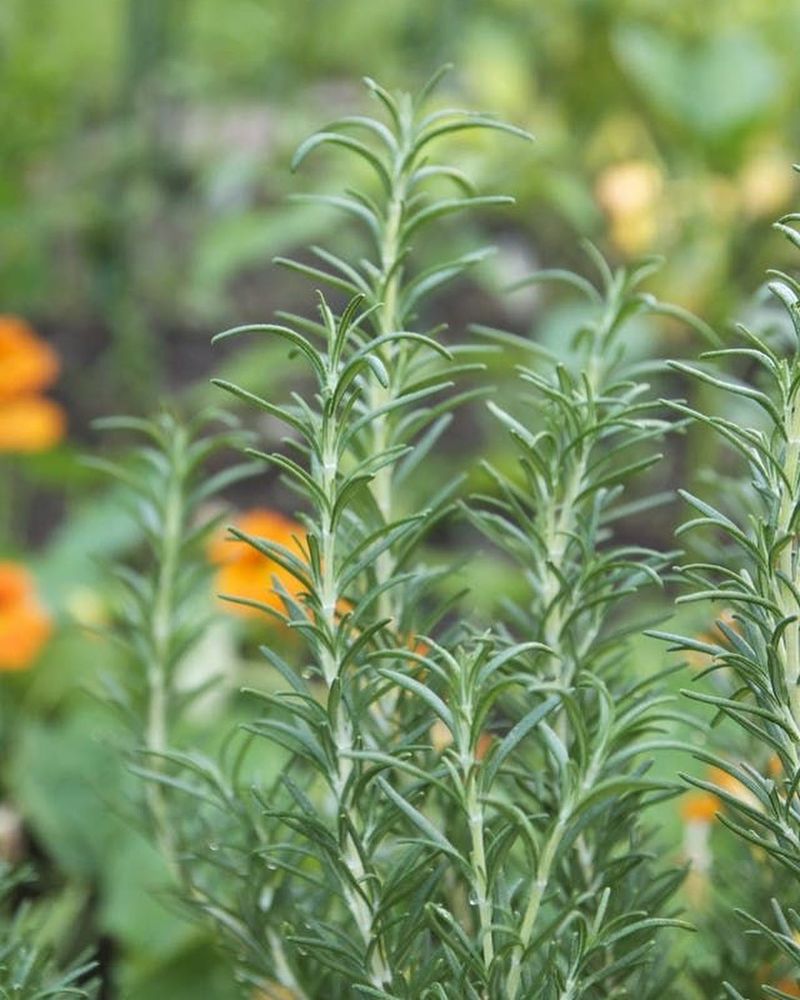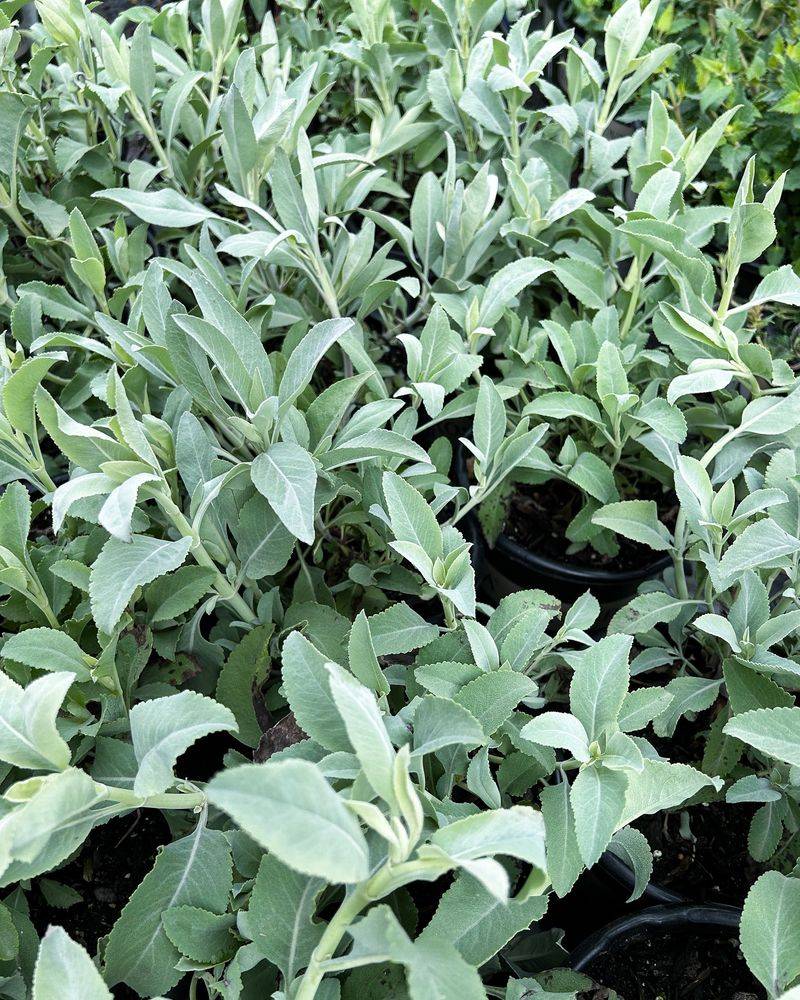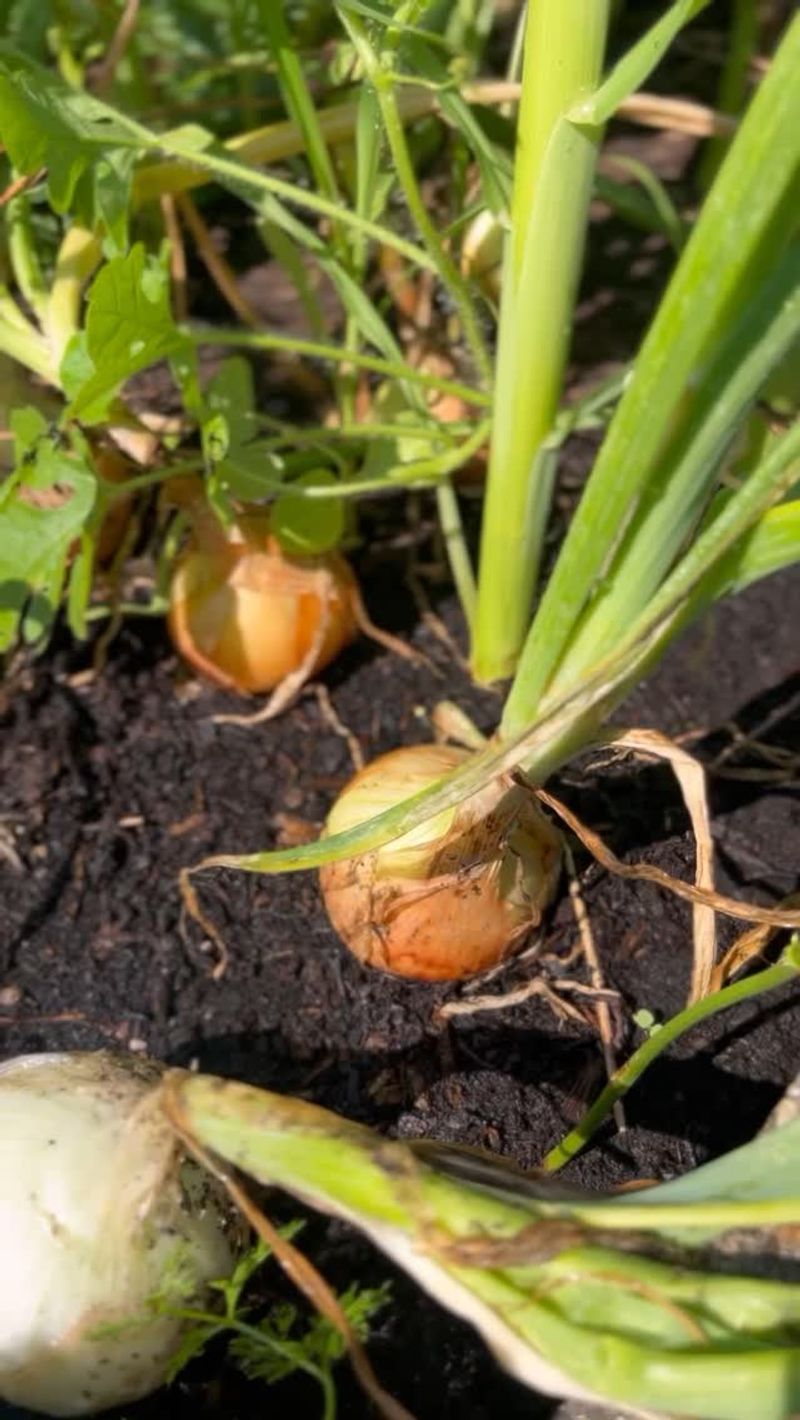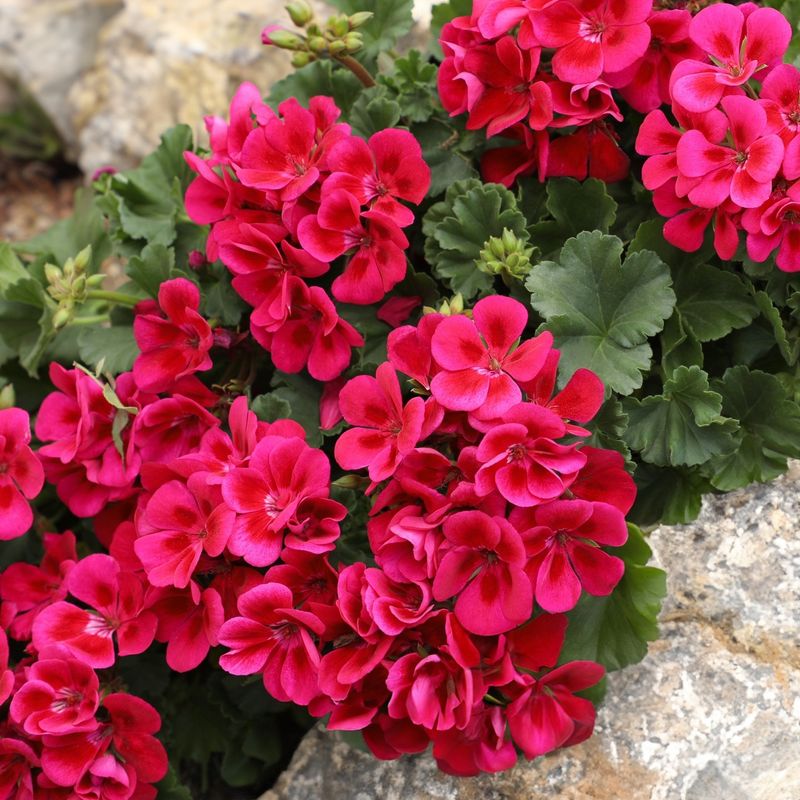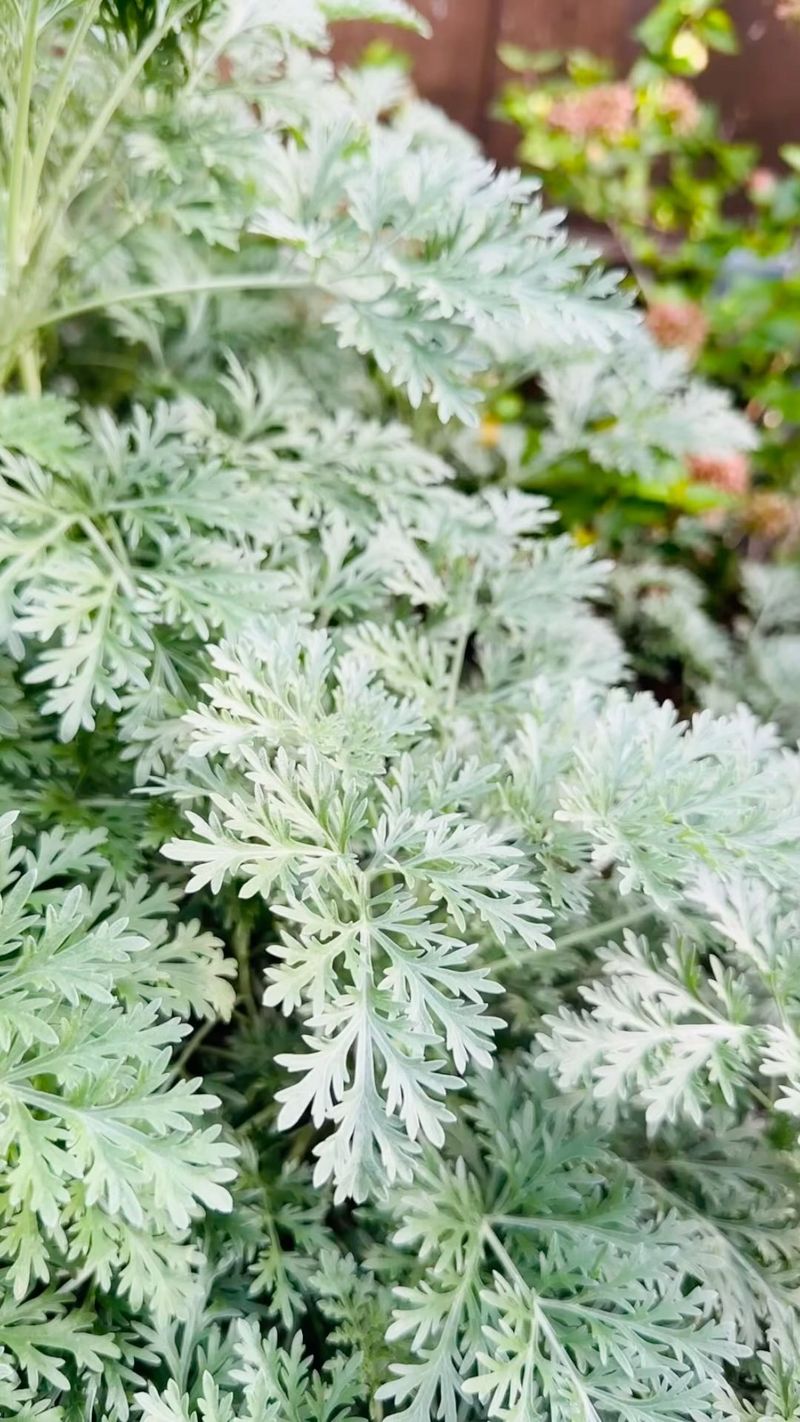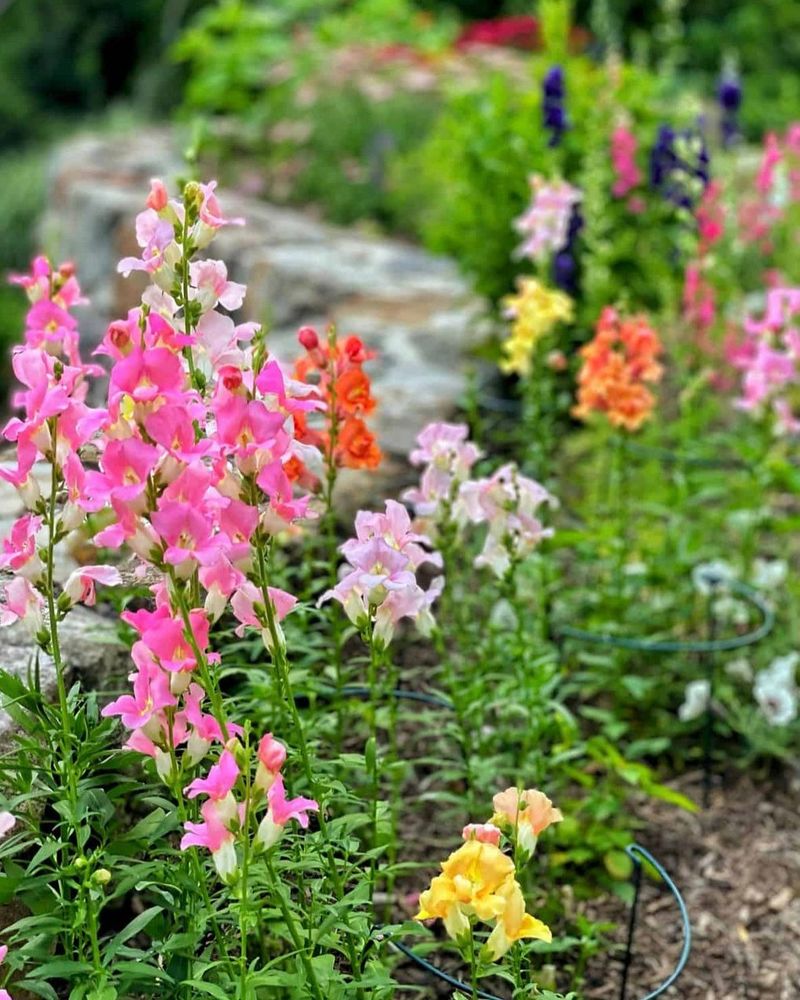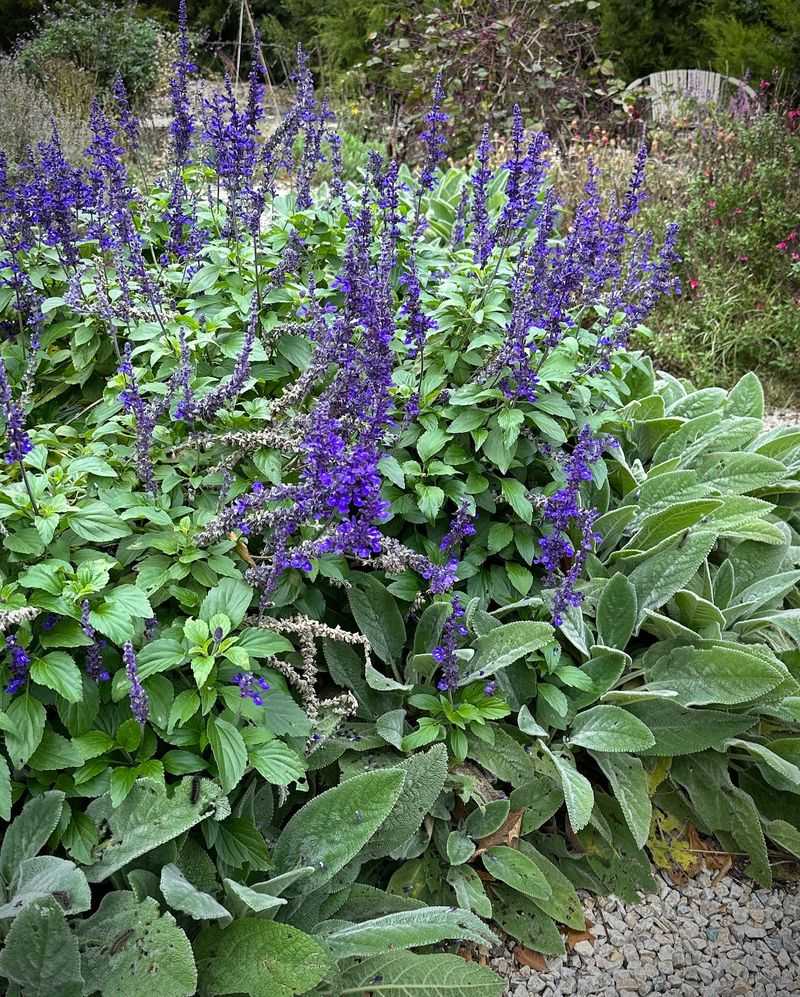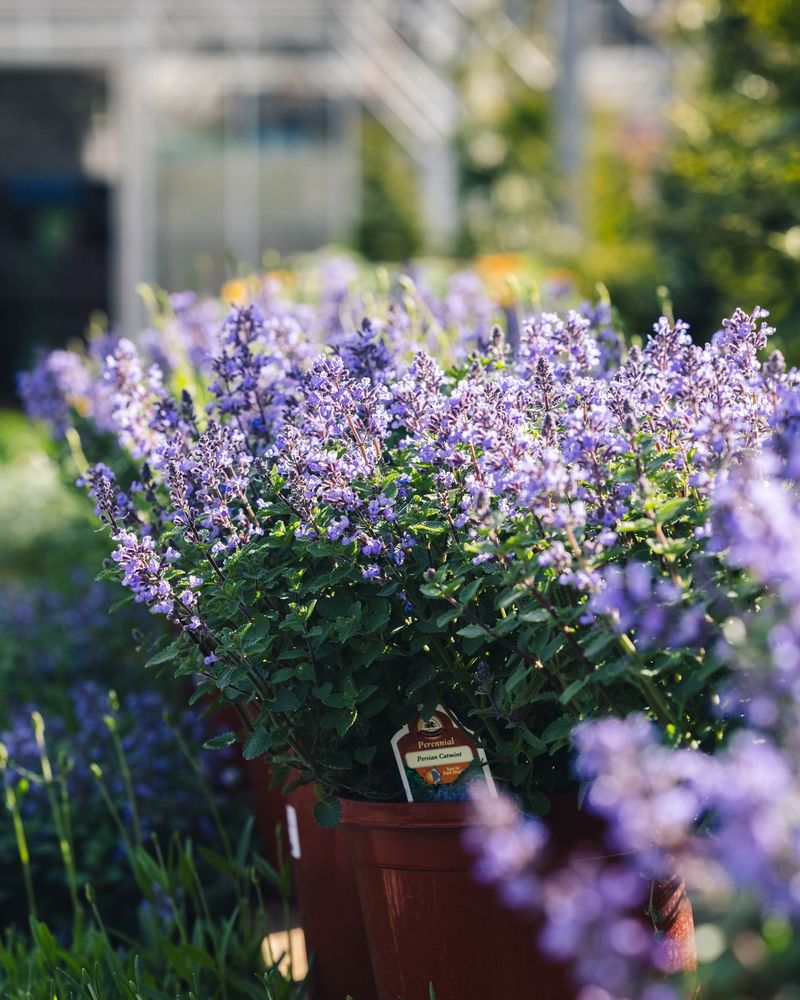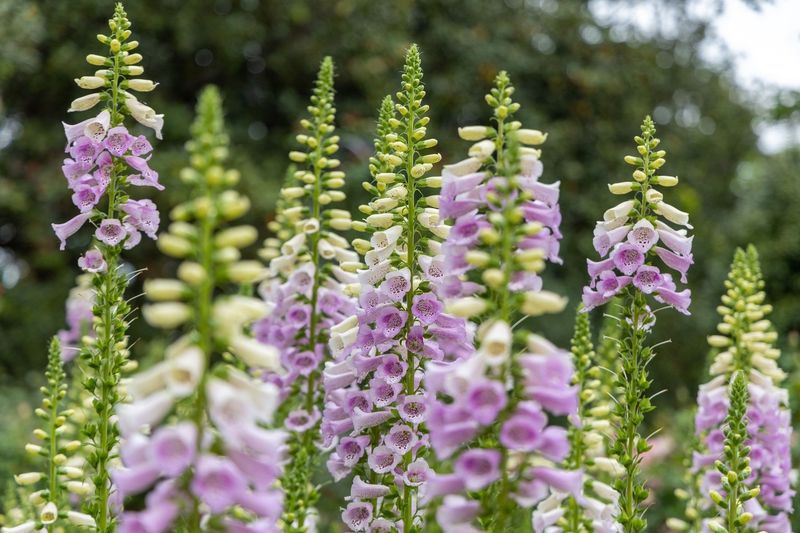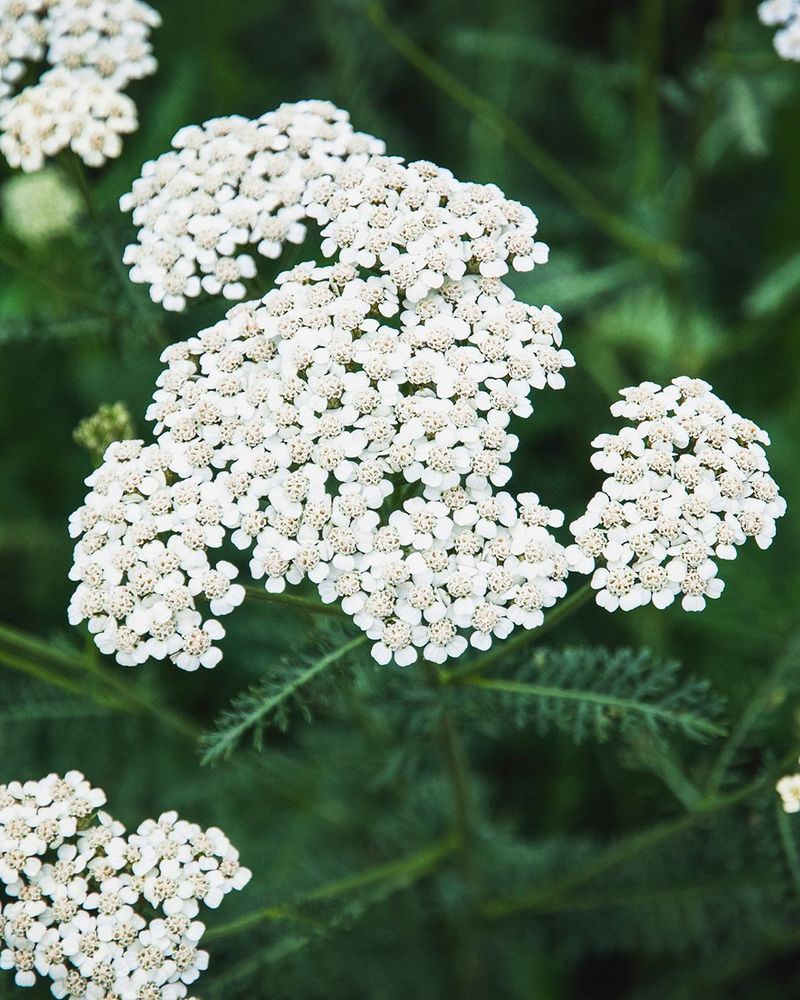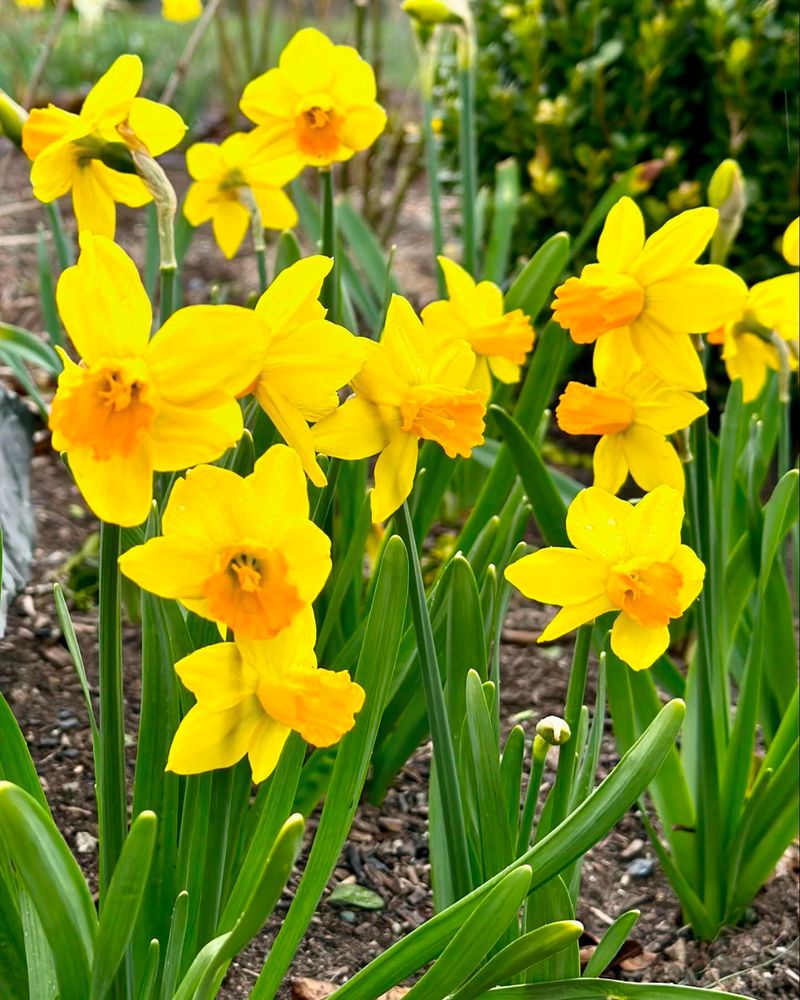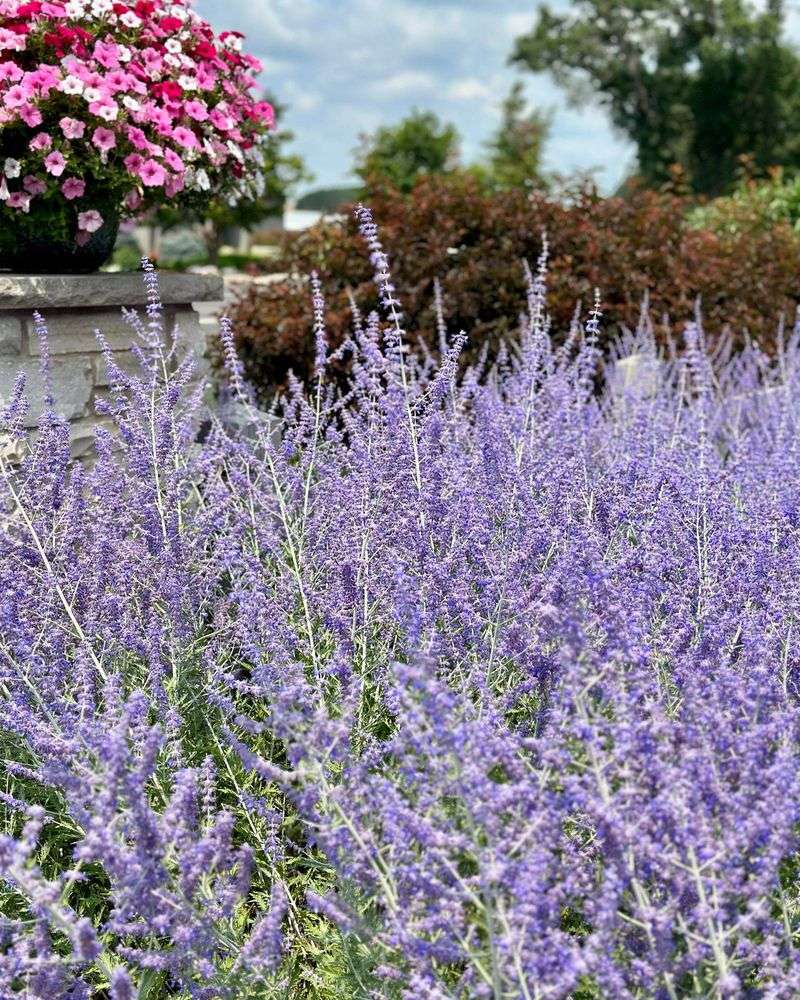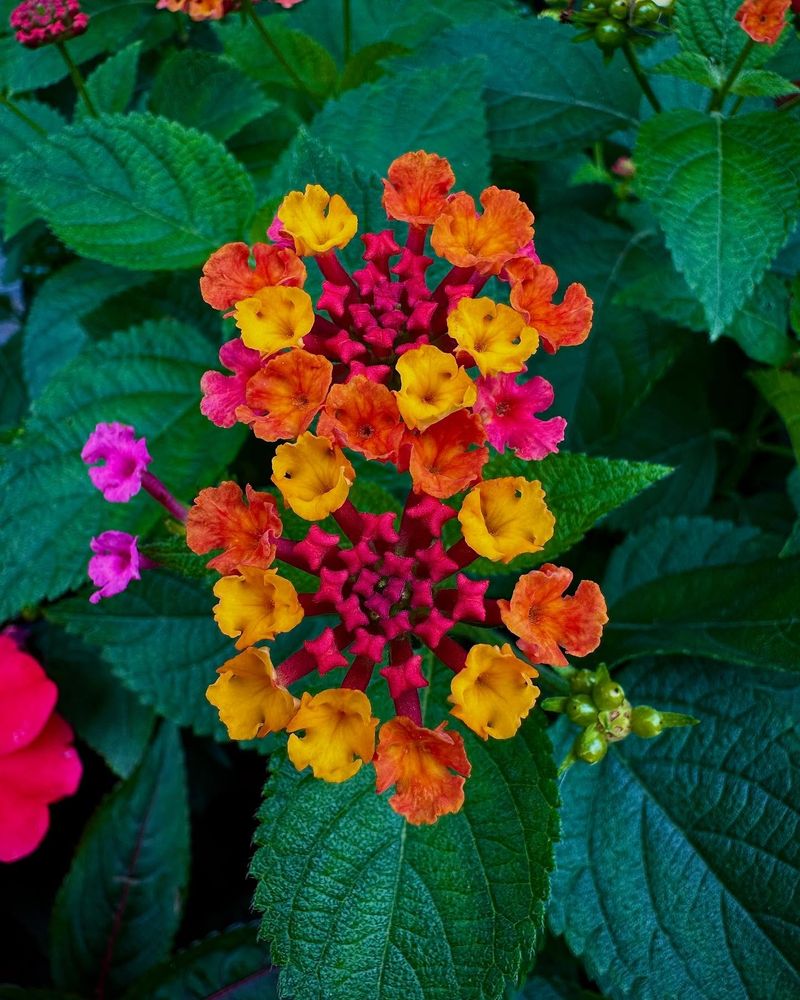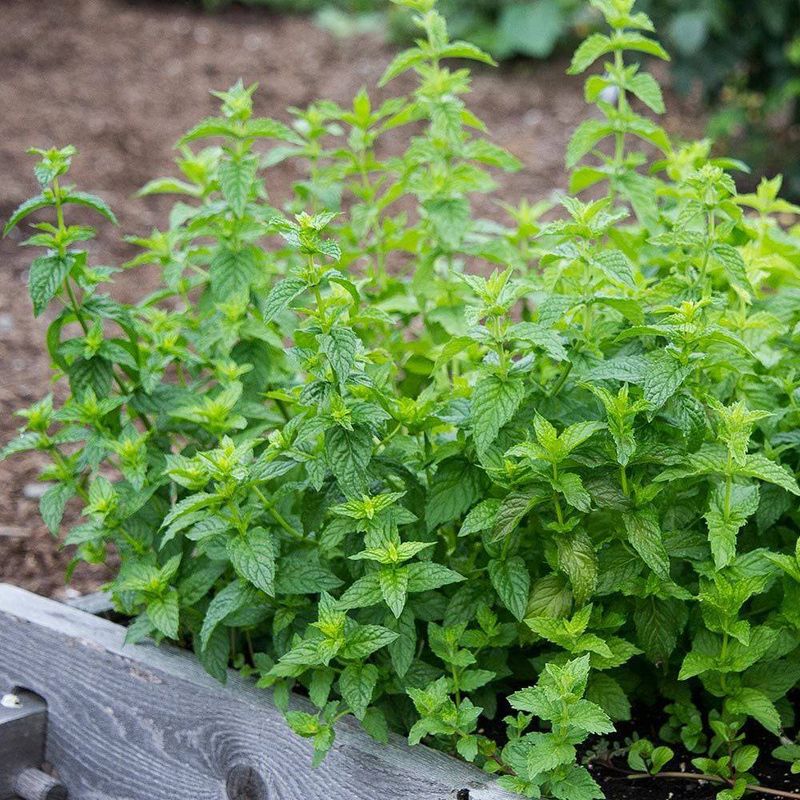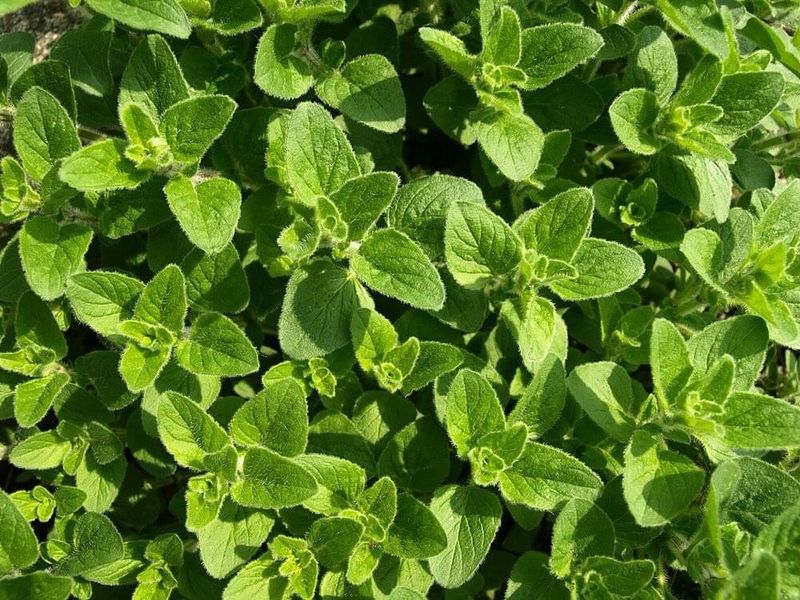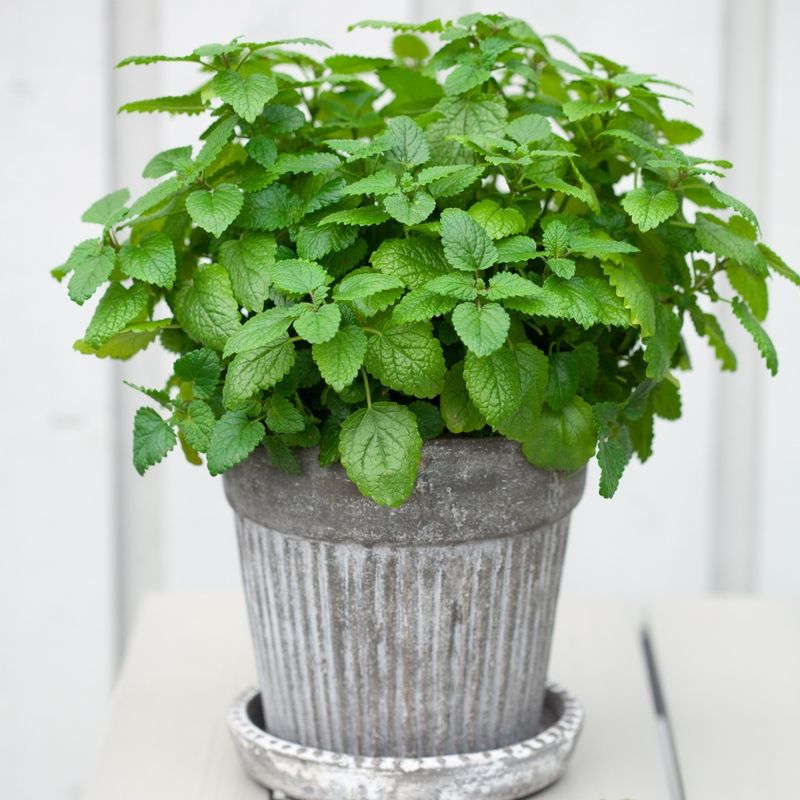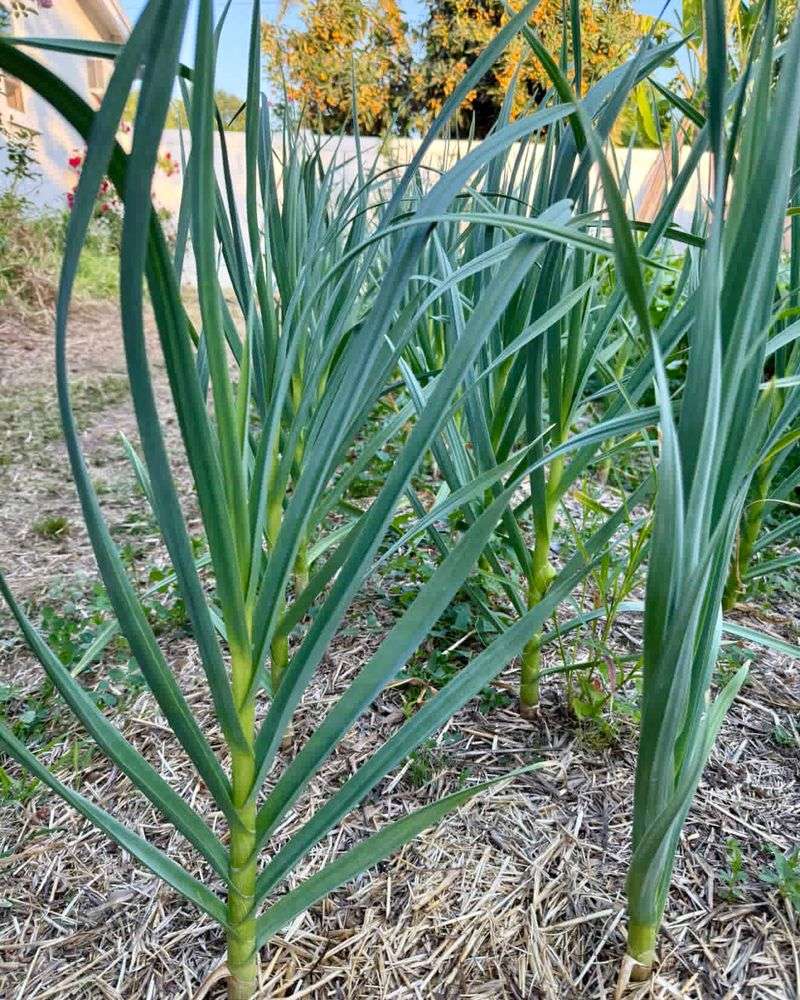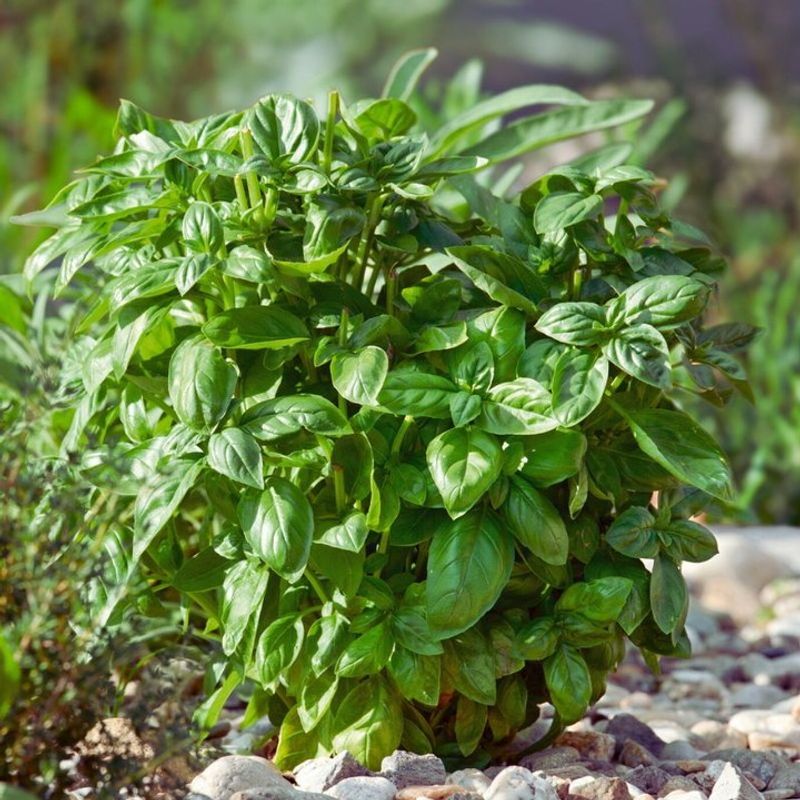Rabbits might look cute, but they sure know how to snack on all the wrong things! If your garden’s starting to feel like a bunny buffet, you’re not alone—I’ve been there, and it’s frustrating.
Luckily, some plants do double duty by looking gorgeous and sending rabbits hopping in the other direction. These green defenders are easy to grow and actually work—no drama, no gimmicks.
Let’s talk plants that keep the fluffballs out and your garden blooming strong.
1. Lavender
The fragrant purple blooms might delight our senses, but rabbits find lavender’s strong aroma completely overwhelming. This Mediterranean herb creates a beautiful sensory barrier that keeps bunnies at bay while attracting pollinators to your garden.
Plant lavender borders around vulnerable vegetables or flowers for maximum protection. This drought-tolerant perennial thrives in sunny spots with well-drained soil, making it both a practical and attractive addition to your garden defenses.
2. Marigolds
With their bright orange and yellow blooms, marigolds add cheerful color while naturally keeping rabbits away. The strong scent emitted from their leaves contains compounds that rabbits find particularly offensive, making them avoid areas where marigolds grow.
Strategically place these annual flowers around the perimeter of vegetable gardens or intersperse them among susceptible plants. Beyond rabbit protection, marigolds also deter many garden pests including nematodes, making them a multi-purpose defender in your garden arsenal.
3. Rosemary
This aromatic herb serves double duty – it’s fantastic in your kitchen and keeps rabbits out of your garden. The woody stems and strong pine-like scent make rosemary particularly unappealing to hungry bunnies looking for a meal.
Grow rosemary in sunny spots with excellent drainage, as it prefers drier conditions. The upright varieties make excellent protective hedges around vulnerable plants, while creeping varieties can cover ground areas where rabbits might otherwise venture.
4. Sage
The velvety, aromatic leaves of sage plants create a natural barrier that rabbits typically avoid. Its strong scent confuses rabbits’ sensitive noses, effectively masking the smell of nearby plants they might otherwise munch on.
Plant sage near vegetables or flowers that rabbits typically target. This drought-tolerant perennial herb thrives in full sun and well-drained soil, requiring minimal maintenance while providing year-round protection against furry garden invaders.
5. Onions
The pungent aroma of onions acts as a natural rabbit repellent throughout your garden. Their strong sulfur compounds irritate rabbits’ sensitive noses and taste buds, making your garden less appealing for their dining pleasure.
Plant onions as a protective border around more vulnerable plants or intersperse them throughout garden beds. As an added bonus, many onion varieties produce attractive globe-shaped flowers that add visual interest while working hard to keep your garden rabbit-free.
6. Geraniums
Bright and cheerful geraniums contain natural compounds in their leaves that rabbits find distasteful. Their strong scent serves as an effective deterrent, keeping rabbits from venturing too close to your precious garden plants.
Place potted geraniums strategically around your garden or plant them directly in borders. These versatile flowers come in numerous colors and varieties, allowing you to create beautiful displays while simultaneously building a rabbit-resistant barrier around more vulnerable plants.
7. Artemisia
The silvery foliage of artemisia plants contains aromatic oils that naturally repel rabbits and other garden pests. Sometimes called wormwood or mugwort, these plants create an effective perimeter defense with their distinctive scent that rabbits avoid.
Artemisia thrives in poor soil conditions where other plants struggle. The feathery, silver-gray foliage adds elegant texture to garden borders while working behind the scenes to keep rabbits at bay – making it both ornamental and functional in your garden design.
8. Snapdragons
Colorful snapdragons bring vertical interest to your garden while naturally deterring rabbits. These popular flowers contain compounds that make them taste bitter to rabbits, encouraging them to look elsewhere for their meals.
Plant snapdragons in clusters around vulnerable garden areas for maximum protection. Their tall flower spikes in vibrant colors not only create a rabbit barrier but also attract beneficial pollinators, making them a multi-purpose addition to your garden’s defense strategy.
9. Salvia
With their spiky flowers and aromatic foliage, salvias create a natural barrier that rabbits typically avoid. The strong scent from their leaves contains compounds that rabbits find particularly offensive, keeping them from munching on these and nearby plants.
Plant salvias in sunny borders where they’ll thrive and provide maximum rabbit protection. These drought-tolerant perennials come in various colors and sizes, attracting beneficial pollinators while simultaneously working as effective rabbit deterrents throughout the growing season.
10. Catmint
While cats may adore this plant, rabbits stay far away from catmint’s aromatic foliage. The strong minty scent interferes with rabbits’ sensitive noses, effectively masking the smell of nearby plants they might otherwise target.
Grow catmint as a border plant around vegetable gardens or flower beds needing protection. Its lavender-blue flower spikes attract beneficial insects while creating a beautiful, low-maintenance barrier that keeps rabbits hopping in the opposite direction.
11. Foxglove
The tall, dramatic spires of foxglove add vertical drama while naturally deterring rabbits from your garden. These striking flowers contain compounds that taste extremely bitter to rabbits, sending them searching elsewhere for their meals.
Plant foxgloves in partially shaded areas around the perimeter of gardens needing protection. Remember that all parts of foxglove are toxic, which is precisely why rabbits avoid them – but also means you should wear gloves when handling and keep children and pets away from these effective rabbit deterrents.
12. Yarrow
The feathery foliage and flat-topped flower clusters of yarrow emit a scent that naturally repels rabbits. This tough perennial contains compounds that rabbits find distasteful, making it an excellent protective plant throughout your garden.
Yarrow thrives in poor soil and drought conditions where other plants struggle. Its ability to withstand challenging conditions while actively deterring rabbits makes it a low-maintenance addition to your garden’s natural defense system.
13. Daffodils
Spring-blooming daffodils contain natural alkaloids that make them toxic and unpalatable to rabbits. These cheerful yellow flowers are often the first plants left completely untouched when rabbits visit gardens in early spring.
Plant daffodil bulbs in fall around the perimeter of garden beds or intersperse among vulnerable plants. Their toxicity serves as a natural deterrent, while their bright blooms signal spring’s arrival – making them both beautiful and functional in your rabbit-resistant garden design.
14. Russian Sage
The aromatic silver-gray foliage of Russian sage emits a scent that rabbits find particularly offensive. This drought-tolerant perennial creates a beautiful and effective barrier that keeps rabbits from approaching your more vulnerable plants.
Plant Russian sage in full sun where its lavender-blue flower spikes can reach their full potential. Its strong scent and woody stems make it naturally unappealing to rabbits, while its drought resistance and low maintenance needs make it perfect for busy gardeners seeking rabbit protection.
15. Lantana
The colorful flower clusters of lantana contain compounds that rabbits find extremely distasteful. This heat-loving plant produces a strong aroma that effectively masks the scent of nearby plants rabbits might otherwise target.
Plant lantana in sunny spots where it can spread and create a protective flowering barrier. Its ability to attract butterflies and hummingbirds while simultaneously deterring rabbits makes it a multi-purpose addition to your garden, combining beauty with natural pest control.
16. Mint
The strong aroma of mint plants overwhelms rabbits’ sensitive noses, making your garden less appealing for their visits. All varieties of mint contain powerful essential oils that create an effective rabbit deterrent throughout the growing season.
Consider growing mint in containers to control its spreading habit. Place these containers strategically around garden areas needing protection from rabbits. The refreshing scent that deters rabbits will simultaneously provide you with fresh herbs for cooking and tea.
17. Oregano
The pungent aroma of oregano makes it naturally unappealing to rabbits searching for a garden snack. This Mediterranean herb contains essential oils that rabbits find overwhelming, keeping them away from areas where oregano grows.
Plant oregano in sunny, well-drained spots around your garden’s perimeter. This drought-tolerant herb requires minimal care while providing maximum rabbit protection, making it perfect for busy gardeners who want effective, low-maintenance solutions to rabbit problems.
18. Lemon Balm
The citrusy scent of lemon balm might smell refreshing to us, but rabbits find it overwhelming and avoid areas where it grows. This member of the mint family creates a natural barrier that protects nearby plants from rabbit damage.
Grow lemon balm in containers to control its spreading tendency. Position these containers strategically around vulnerable plants or garden entries where rabbits typically enter. The bright, lemony aroma that deters rabbits will also attract beneficial pollinators and provide you with fragrant leaves for tea.
19. Garlic
The strong sulfur compounds in garlic create an intense aroma that naturally repels rabbits from your garden. These pungent bulbs emit scents that overwhelm rabbits’ sensitive noses, making your garden less inviting for their visits.
Plant garlic cloves in fall for spring harvest, spacing them around the perimeter of vegetable gardens or flower beds. Beyond rabbit protection, growing garlic provides you with fresh bulbs for cooking while also deterring many other garden pests – making it a multi-purpose addition to your garden’s defense system.
20. Basil
Though we love basil in our pasta dishes, rabbits can’t stand its aromatic foliage. The strong scent contains compounds that rabbits find particularly offensive, making basil an effective natural deterrent throughout your garden.
Grow basil in sunny spots near vegetables that rabbits typically target. This annual herb thrives in warm weather and can be planted in beds or containers for strategic rabbit protection. The same aromatic oils that repel rabbits will provide you with flavorful leaves for cooking all summer long.

